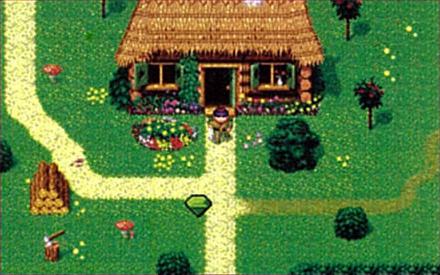While working on our book about lost video games, we were able to interview many developers who worked on cancelled projects, but we had to cut some of these interviews from the book because of the 480 pages limit. As promised, we are going to publish all the missing articles directly in our website, and the following interview is one of these! During his career Julian (Jules) Holtom has worked at Imagitec Design, Ocean Software and Team17 on such lost games as HMS Carnage (PC), Worms Battle Rally (PS2, Xbox, GameCube) and many more.
Unseen64: To start this interview, we would like to ask you to introduce yourself to our readers: we’d love to know more about your career in the gaming industry and what you are working on today.
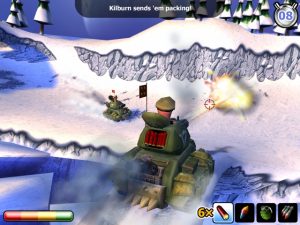 Jules: I spent almost 23 years working in video games, the first machines I worked on were Spectrums, building sprites from character graphics. At the time there were no off-the-shelf art packages to speak of; the few tools that we did have were coded from scratch by the in-house programmers.
Jules: I spent almost 23 years working in video games, the first machines I worked on were Spectrums, building sprites from character graphics. At the time there were no off-the-shelf art packages to speak of; the few tools that we did have were coded from scratch by the in-house programmers.
Of course as with all things technological this changed, and as an artist you had to be fleet of foot to keep up with the latest tools being developed, to help us to deliver to the ever changing capabilities of target platforms. By the time I quit the industry I was using the same 3D software and rendering tools that the film industry uses to create their cinematic magic.
I’ve been out of the industry now for 7 years, and in that time I’ve turned my hand to photography, design and building websites. I certainly miss the camaraderie of old colleagues, but definitely not the “crunch”.
Unseen64: Which are some of your favourite videogames? Have you been playing anything lately?
Jules: I’ve always had a soft spot for sprawling RPG’s with a few hundred hours of gameplay, such as Skyrim. I also love fps “twitch” games like Battlefield 4 or more recently The Division.
Unseen64: Can you shed any unique / personal light on Daemonsgate by Imagec, which seems was planned as a trilogy (Dorovan’s Key, Nomads and Homecoming)? Key marketing aspect was that actions in 1 game would have implications in sequels, so kill an NPC in the 1st game i.e. ‘Barry pig-squealer’ and his family would come looking for revenge in the 2nd game (a concept years ahead of its time).
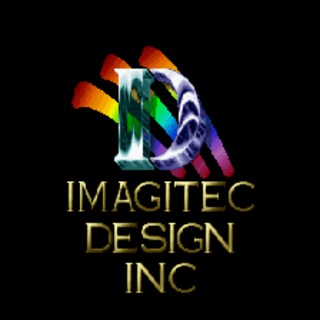 Jules: This game was by any standards, ambitious in scope and scale. We were trying to create a far more involved game world than any equivalent game had to offer at the time, and I expect the mechanics of which have only just been truly realised in these type of games in the last 5 years. The hardware, architecture, and coding capabilities coupled with time constraints meant it simply wasn’t possible to build the game as intended at that time, and I think as with all games, there were some significant compromises from the original brief in order to get the game finished.
Jules: This game was by any standards, ambitious in scope and scale. We were trying to create a far more involved game world than any equivalent game had to offer at the time, and I expect the mechanics of which have only just been truly realised in these type of games in the last 5 years. The hardware, architecture, and coding capabilities coupled with time constraints meant it simply wasn’t possible to build the game as intended at that time, and I think as with all games, there were some significant compromises from the original brief in order to get the game finished.
Unseen64: What can you tell us about Prophecy: Viking Child? UK Press had claimed that Imagitec had originally planned this as a trilogy of games, was there any truth in this?
Jules: I only helped Blizz (the lead artist) a couple of times on that project, recolouring sprites if memory serves. As it wasn’t my project, I didn’t pay too much attention to what it was meant to be.
Unseen64: Do you have anything you could tell us on canned Imagitec games like Space Junk (which was a WIP on everything from the sega Mega CD, Atari Falcon and then Jaguar CD) or any other lost Imagitec projects that never seen the light of day?
Jules: Imagitec often had games “using as yet unseen technological advancements” in development, it sounded good and helped Martin Hooley, the studio owner, raise funding to keep the studio going. In truth, I have no idea if any of these titles were ever really meant to be completed.
Unseen64: In mid / late ‘90 Ocean Software wanted to develop some really groundbreaking games, they rebranded their internal development department as “Tribe”, invested a lot of money, hired a lot of new talent and asked everyone to come up with amazing original concepts huge enough to fill a CD-ROM (!). One of these concepts was the stunning looking HMS Carnage – a 3D flight sim, set on Mars, in an alternative, Steampunk future. We have read memories from Nigel Kershaw about his involvement on HS Carnage but we’d love to hear your side of the story: how was to work on such an ambitious project and do you think it could have achieved what was planned if only the team had more time?
Jules: Nigel and I had worked together for some years both at Imagitec (which became Dreamweavers, then Runecraft), and at Ocean; he was the designer behind Daemonsgate and Space Junk. Not afraid of taking a brief and creating a game of “epic proportions” from it, he was the perfect fit to drive HMS Carnage. I was the lead artist heading up the 3d team, and at the time, we really were treading water, using hardware and software than no one had any experience of, including the coding team that were getting to grips with real 3D.
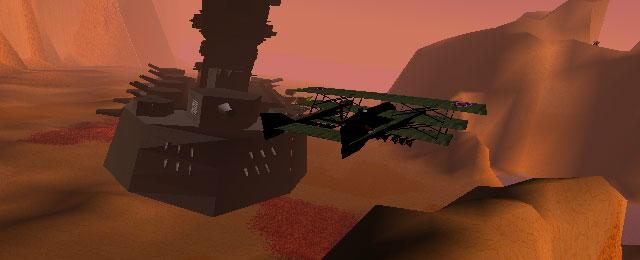
Unseen64: What did you work on while at Ocean before HMS Carnage? At the time they were also working on Silver (released in 1999) and on a point ‘n click adventure with Hanna-Barbera characters, called “Zoiks” that was later cancelled. Any other lost games or pitches for unrealized ambitious projects that you remember from those years?
Jules: Jurassic Park, but couldn’t tell you what console it was for. I also helped render some FMV sequences for out of house dev teams. I believe one game was called Central Intelligence, the other was one of the flight sims that came from DID.
Unseen64: Long shot, but whilst at Ocean, we’re you aware if Jaguar proposals for games like Water World, TFX and Robocop ever getting past proposal stage? They often pop up on YouTube videos as lost Jaguar games, but unlike Toki Goes Apeshit (which we have actual footage of) there’s so far seemingly nothing to suggest they were ever started and thus aren’t true lost games..
Jules: Unfortunately I cannot say. When you are in a team, you usually only focus on the task before you and pay little heed to projects elsewhere. You might be better of speaking to a producer of that time, who had a top down view of everything that was in development and what happened to it.
Unseen64: You worked for more than 9 years at Team17 on many popular games, but unfortunately a few of those were never released. One of them was Worms Battle Rally: what do you remember about this project? How was the gameplay like and why was it canned?
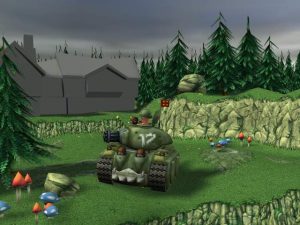 Jules: The Worms franchise has often been shoehorned into other successful game genres, trying to piggyback off of their success to eek out more money from fans loyal to the original game. Worms Battle Rally was no exception, essentially aping Mario Kart. Unfortunately the team bought together to work on it, had little experience of building driving games. That began to tell after a while when the game simply wasn’t living up to expectations, both internally and when compared to games already out there. The lack of confidence to deliver meant the plug was pulled.
Jules: The Worms franchise has often been shoehorned into other successful game genres, trying to piggyback off of their success to eek out more money from fans loyal to the original game. Worms Battle Rally was no exception, essentially aping Mario Kart. Unfortunately the team bought together to work on it, had little experience of building driving games. That began to tell after a while when the game simply wasn’t living up to expectations, both internally and when compared to games already out there. The lack of confidence to deliver meant the plug was pulled.
Unseen64: Do you remember other cancelled games in development or pitched at Team17 during those years? If so, can you share some details about what they could have been?
Jules: I expect there will be quite a few, but I can’t remember them, sorry.
Unseen64: Working on videogames is often tough and gruelling work, but every development team has both one catastrophic and one funny story (or at least bizarre). Do you remember any such stories from your experience in so many different gaming studios?
Jules: Too many to mention, particularly from the early days of game dev, which were let’s say… a little like the Wild West frontier of old. Rules were far and few between. However a few do stand out; Gaffa taping a programmer to a chair on his birthday then handcuffing them to the back of a car and towing them at speed around the company carpark. The following year we handcuffed the same guy to the drainpipe outside the office and deluged him in buckets of water… his birthday was in the middle of winter.
Another chap we worked with used to get on the wrong side of many of us, one day it was decided we’d mete out a collective punishment and covered his entire car in shaving foam and disposable razors. The man in question was notoriously short-fused, and we knew full well he’d hit the roof upon seeing his car, but I think the cherry on top the pushed him over the edge was the word “cock” on his reg plate.
Unseen64: That was the last question, thanks a lot for your time Jules!

![P.I.G. (Team 17) [Playstation, PC – Cancelled] P.I.G. (Team 17) [Playstation, PC – Cancelled]](https://www.unseen64.net/wp-content/uploads/2016/02/pig-team17-platform-game-cancelled-670x300.jpg)
